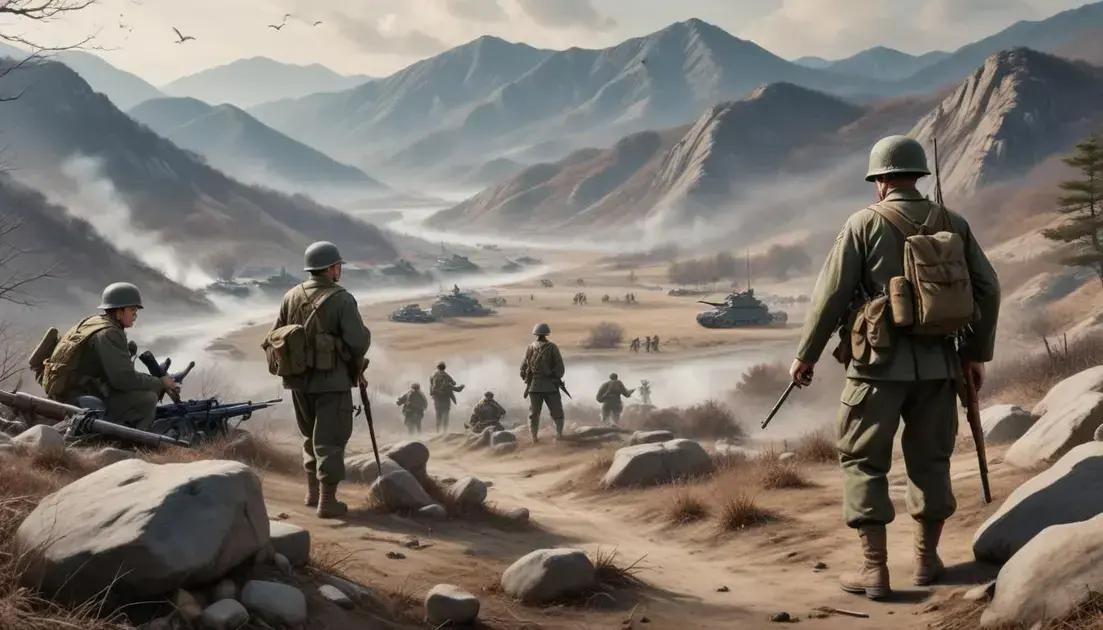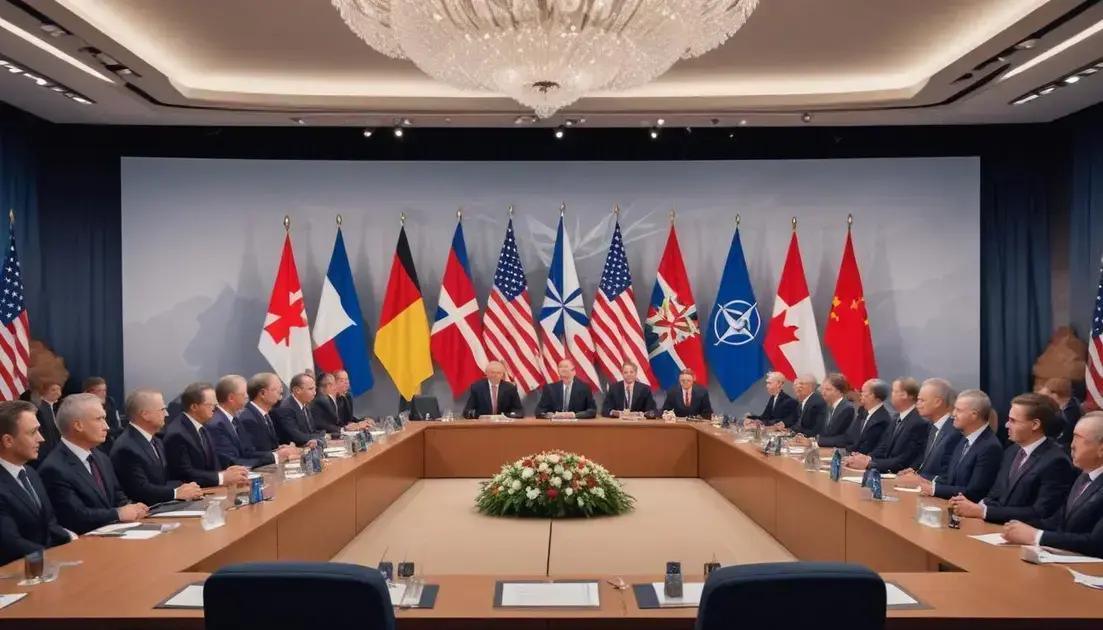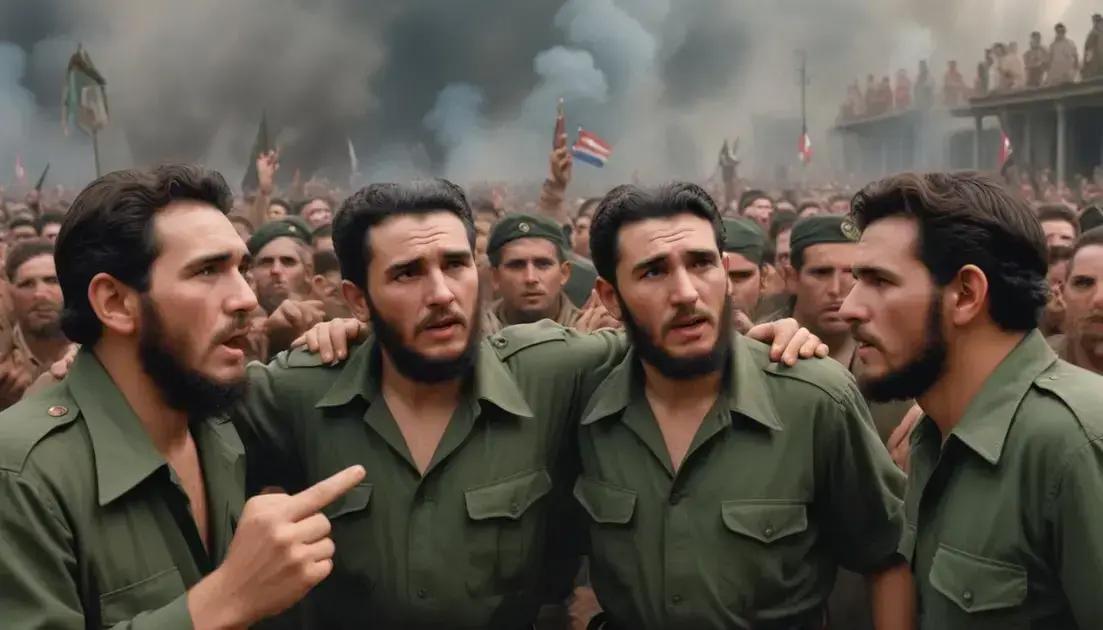
Korea: the forgotten war of the Cold War
The Korean War, fought between 1950 and 1953, significantly altered global dynamics during the Cold War. It began with North Korea’s invasion of South Korea, leading to a brutal conflict involving multiple nations. The war resulted in immense loss of life and lasting divisions between North and South Korea, which still persist today. Key battles, like the Battle of Inchon and Chosin Reservoir, showcased the intense military efforts on both sides. The conflict served as a catalyst for Cold War tensions, influencing international relations and military strategies for years to come.
When we think about conflicts that shaped the modern world, the Korean War often slips through the cracks. But wait—did you know that this pivotal war was a defining moment during the Cold War? Let’s dive deeper!
Background and causes of the Korean War
The Korean War began in 1950 and was deeply rooted in the struggles of Korea’s past. After Japan ruled Korea from 1910 to 1945, the country was divided into two separate zones. The North was backed by the Soviet Union, while the South received support from the United States. This division set the stage for conflict.
As tensions grew, different ideologies clashed. North Korea wanted to spread communism, while South Korea aimed to maintain a capitalist system. In June 1950, North Korea invaded South Korea, marking the start of the war.
The involvement of international powers complicated the situation further. The United Nations quickly came in to support South Korea, while China and the Soviet Union backed North Korea. This made the war not just a struggle for Korea but a conflict caught in the global battle of communism versus democracy.
The war caused immense suffering and loss on both sides. Millions of civilians were impacted, with many displaced from their homes. Families were torn apart, making healing and reunification a long, difficult journey.
Understanding these background factors is crucial to grasping why the Korean War continues to influence politics and relationships in the region today. The scars of war still linger, reminding us of the history that shapes the present.
Major battles and events
The Korean War saw many significant battles and events that shaped its course. One of the first major clashes was at the Battle of Inchon. This surprise attack in September 1950 helped the United Nations forces regain control in the region.
Another key moment was the Battle of Pusan Perimeter. Here, North Korean forces pushed the South Koreans and their allies to the coast. However, they held strong, preventing total defeat.
The war escalated in late 1950 when Chinese troops entered the conflict. This led to intense fighting, including at the Battle of Chosin Reservoir. US and UN troops faced harsh weather and fierce opposition, marking a difficult point in the war.
As the conflict continued, the stalemate took shape around the 38th parallel. Here, both sides dug into trenches. Skirmishes broke out often, but neither side made significant gains.
Significant events include the signing of the Korean Armistice Agreement in 1953. This ended the fighting but did not officially end the war. North and South Korea remained divided, with tensions simmering to this day.
Each battle and event during the Korean War played a crucial role in how the conflict unfolded and affected future relations in the region.
Impact on Cold War dynamics
The Korean War had a lasting impact on Cold War dynamics. It shaped how the United States and the Soviet Union interacted. After the war began, both superpowers became more involved in global conflicts.
In the early stages, the US responded to North Korea’s invasion by supporting South Korea. This was part of America’s policy of containment. The goal was to stop the spread of communism worldwide. The US quickly formed alliances with other nations to strengthen its position.
Meanwhile, the Soviet Union saw the war as a way to expand its influence. They backed North Korea with military aid and equipment. This support helped North Korea hold its ground against UN forces.
As the war dragged on, fear of nuclear weapons grew. Both sides rushed to build up their arsenals. The Korean War was a reminder of how quickly tensions could escalate. It demonstrated the need for caution in handling international disputes.
Ultimately, the war solidified the division of Korea and intensified the Cold War. It also set the stage for future conflicts in Asia, such as the Vietnam War. The impact of the Korean War is still felt today in how countries engage with each other.
Post-war consequences
The aftermath of the Korean War brought significant consequences. Both North and South Korea faced tremendous challenges. The war left millions of people dead or injured and many families separated.
In the North, the government focused on rebuilding the country with Soviet support. They established a strong military to defend against perceived threats. This led to a culture of strict control and oppression.
Meanwhile, South Korea began rebuilding with aid from the United States. The focus shifted towards economic development. Over time, South Korea developed into a vibrant democracy and a growing economy.
The armistice signed in 1953 created a tense truce but not lasting peace. The Korean Peninsula remained divided along the DMZ (Demilitarized Zone), where both sides maintain military presence. This division set the stage for future conflicts and ongoing tensions.
Additionally, the war influenced global politics. The US extended its military presence in Asia. Countries like Japan gained strategic importance during the Cold War due to their alliances with the US.
The Korean War also left deep scars in society. Both North and South Koreans carry memories of the conflict. These shared experiences have shaped national identities on both sides of the divide.
Legacy and remembrance
The Korean War left a profound legacy that affects Korea and the world today. Many people remember the war as a painful chapter in history. Memorials and museums honor those who fought and sacrificed during the conflict.
In South Korea, people hold annual events to celebrate the end of the war and honor veterans. History education includes lessons about the war’s impact on the nation’s growth. These reflections help younger generations understand their history.
In North Korea, the narrative differs. The government promotes a strong image of victory and resistance against external aggression. This creates a sense of nationalism but often overlooks the war’s true costs.
Families separated by the war still seek reunion. Many North and South Koreans wish to reconnect with lost relatives. This ongoing desire highlights the personal toll of the conflict.
Internationally, the war shapes discussions about peace and diplomacy today. The tense relationship between North and South Korea continues to draw attention. Efforts for denuclearization and dialogue remain hot topics in global politics.
Ultimately, the legacy of the Korean War serves as a reminder of the cost of conflict. Remembering the past helps guide future actions and encourages peace efforts.
Conclusion
In conclusion, the Korean War significantly shaped modern history. Its effects are felt not only in Korea but around the world. The struggle and sacrifices of those involved remind us of the high cost of conflict.
As we look back, it’s essential to remember the lessons learned. The importance of dialogue and understanding can’t be stressed enough. Efforts toward peace are vital to ensure a brighter future.
Keeping the memory of the war alive through education and remembrance helps prevent similar conflicts. By honoring those who fought, we promote peace and unity, fostering a better world for future generations.


